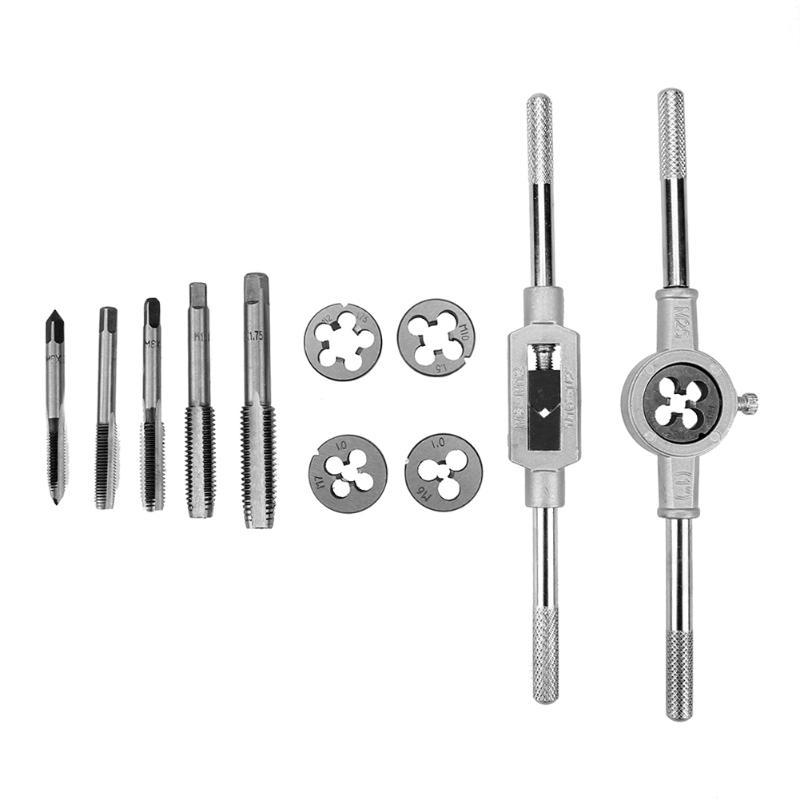HSS Taps and Dies: Technical Insights, Applications, and Benefits
Technical Specifications of HSS Taps and Dies
HSS tools are engineered to withstand demanding machining conditions. Here’s a breakdown of their technical features:
- Material Composition
- HSS grades like M2, M35, and M42 are commonly used, containing tungsten, molybdenum, chromium, and vanadium. These alloys enhance hardness (up to 64-68 HRC) and heat resistance.
- Advanced coatings like Titanium Nitride (TiN) or Titanium Carbonitride (TiCN) reduce friction and extend tool life by up to 300%.
- Heat Resistance
- HSS retains hardness at temperatures up to 600°C (1,112°F), making it ideal for high-speed operations.
- Design Variations
- Taps: Includes spiral flute (for chip evacuation in blind holes), straight flute (general-purpose), and forming taps (for ductile materials).
- Dies: Adjustable dies for fine-tuning thread depth and solid dies for high-volume production.
- Cutting Speeds
- Optimized for materials like stainless steel (10-15 m/min) and aluminum (30-50 m/min), balancing efficiency and tool longevity.
Key Applications of HSS Taps and Dies
HSS threading tools are critical in industries requiring precision and durability:
- Automotive Manufacturing
- Threading engine components, brake systems, and fasteners, where strength and corrosion resistance are vital.
- Aerospace Engineering
- Crafting high-tolerance threads for turbine blades, landing gear, and structural parts exposed to extreme conditions.
- Construction and Heavy Machinery
- Producing robust fasteners for steel beams, hydraulic systems, and machinery assemblies.
- Electronics and Appliances
- Creating fine threads for small screws, connectors, and precision components in devices.
- General Metalworking
- Used in CNC machining, lathes, and manual tooling for prototyping and mass production.
Advantages of HSS Taps and Dies
HSS outperforms carbon steel and rivals carbide in many scenarios due to its unique benefits:
- Superior Durability
- Resists wear and deformation, even under high-stress operations, reducing downtime and replacement costs.
- Cost-Effectiveness
- More affordable than carbide tools while offering longer life than carbon steel, ideal for small to medium-scale operations.
- Versatility
- Compatible with a wide range of materials, including steel, aluminum, brass, plastics, and composites.
- Ease of Resharpening
- HSS tools can be reground multiple times, extending usability and lowering long-term costs.
- Balanced Performance
- Combines high-speed capability with toughness, making it suitable for interrupted cuts and varied workloads.
Post time: May-12-2025
